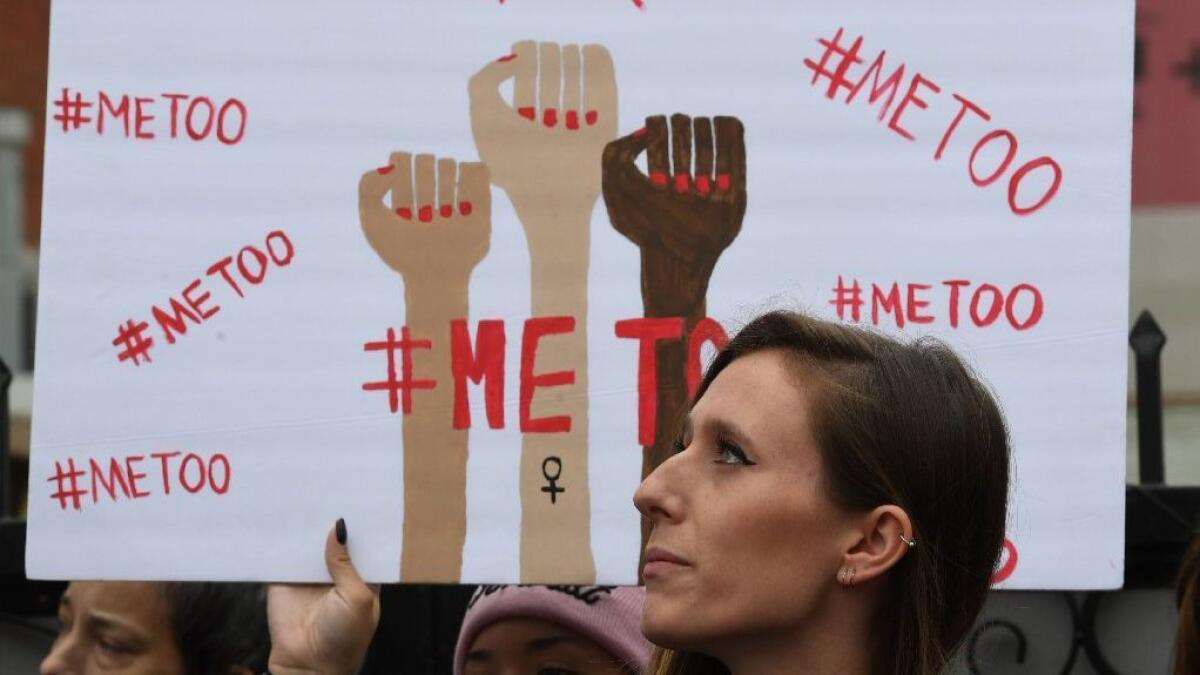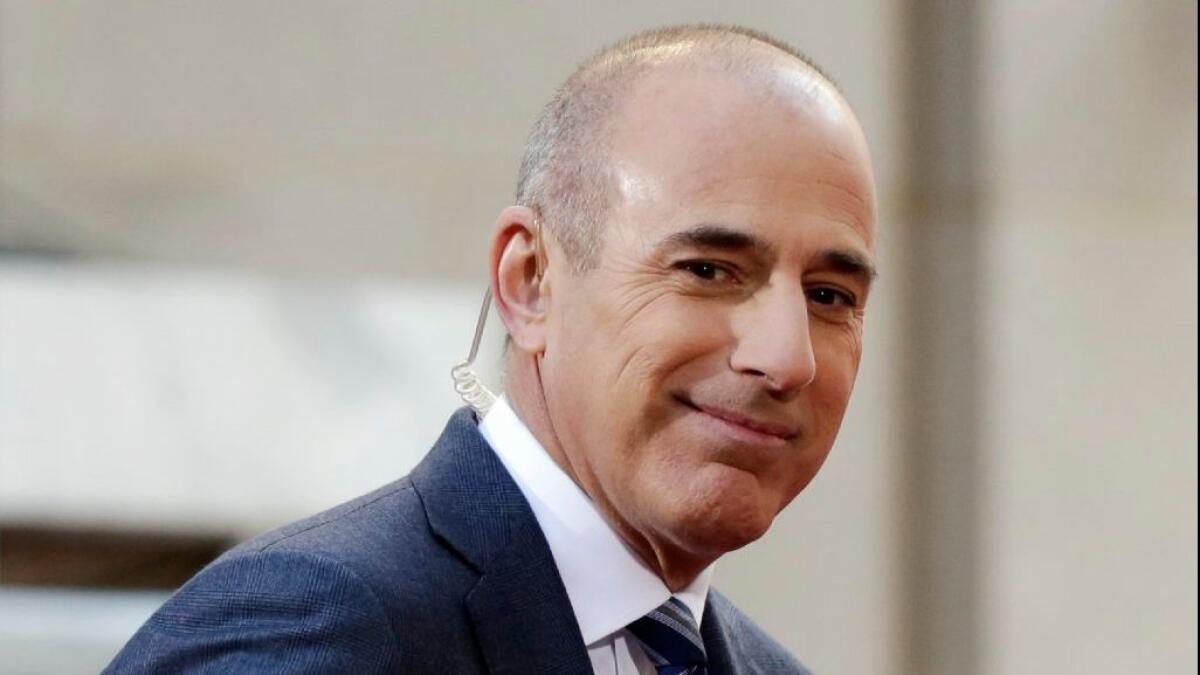More companies invest in training to prevent sexual harassment — but it might not be doing much good

The recent high-profile reports of sexual harassment in the workplace have prompted a surge in training courses, which experts are updating to reflect the latest examples making front-page news.
Inquiries about sexual harassment training provided by TrainUp have skyrocketed, said Jeremy Tillman, founder and chairman of the Dallas-based company. The company got about 2,150 requests for its services last month, compared with 267 in January 2017.
“We’ve reached a point to where companies can no longer turn a blind eye,” he said.
Since 2005, California employers have been required to conduct two hours of sexual harassment awareness training every other year for supervisors and executives in companies with 50 or more employees. The subjects covered have expanded over the years, and as of Jan. 1, were extended to gender identity, expression and orientation.
Experts say two hours of training doesn’t guarantee better behavior, judging by the publicized cases of late.
“Here’s what doesn’t work — relying solely on compliance rules, education and training — to prevent or address sexual harassment, “ said Johnny C. Taylor Jr., president and chief executive of the Society for Human Resource Management, at a joint legislative committee hearing in Sacramento last month. “We could demand that every employee take 10 hours of sexual harassment training every week and accusations would still happen.”
The U.S. Equal Employment Opportunity Commission logged 356 complaints last year in California, an increase from 2016 but less than the high of 441 filed in 2014.
Kit Goldman, a San Diego actress who runs sexual harassment training sessions, said she has seen a sharp increase in calls in recent months.
“There’s definitely an awareness of how damaging [harassment] is, because people have seen companies and careers evaporate from this,” she said.
Next month, she and her team will be shooting nine new videos to bring her sexual harassment vignettes up to date. She also gathers fellow actors together to demonstrate the don’ts in the workplace at onsite training sessions.
“My job is to help my clients stay solvent, lawful and happy in the workplace,” she said.

If companies don’t take steps to deter harassment, they can pay a high price. The EEOC said employees who had made sexual harassment complaints received a record $46.3 million in monetary compensation in 2017, up 13.8% from 2016.
The Consumer Attorneys of California said several laws have been introduced in Sacramento this year to clamp down even further. They would:
- Extend the statute of limitations from the current one-year maximum to three years.
- Broaden the definition of who can sue in the course of searching for work.
- Loosen arbitration-requirement provisions in employment contracts.
- Regulate how many years company must keep complaint records.
But the group’s legislative counsel, Jacqueline Serna, said no bills have been introduced yet to require all employees to undergo harassment awareness training. Some companies do conduct training for nonsupervisorial workers.
Hollywood, Silicon Valley, New York and Washington, D.C., have dominated the headlines of egregious behavior, mostly men harassing women.
But the food, beverage and hospitality industry has historically seen the most cases, experts say.
“We just have much more exposure than any of these other industries,” said Stephen Zolezzi, chief executive of the San Diego Food & Beverage Assn. “It’s a hospitality environment. There’s more of an opportunity to be familiar with people, and that could be offensive to somebody — where do you draw the line?”
His members pay $30 a person for online biannual sexual harassment training — a charge that can run much higher for in-person sessions. And the need is constant, he said.
Melody Nelson, vice president of human resources at Burger Lounge Restaurants, said her company uses online training courses that feature animated scenarios and quizzes throughout. Onsite instructor sessions also have been held.
“We’re at work and we can be friendly and caring and have close bonds with employees, but we always have to maintain professionalism,” she said.
Heather Whitley-Quinn, human resources director at employment agency Manpower, said virtually the entire staff, not just management, receives sexual harassment training. But she acknowledged that low-level employees at any company may still not feel empowered to complain because they can’t afford to quit and look for a new job.
“If they leave an organization they may not necessarily be able to get good references if they make waves,” she said. “These issues are probably still pretty common.”
Attorneys who represent both employers and employees in sexual harassment cases said that while training is required, many bosses and their workers don’t take the rules very seriously — that is, until there’s a problem.
“It’s not just about sex — it’s about power,” said Joshua Gruenberg, who represents workers suing companies, “and there are folks in the workplace who want to exert power over others.”
Gruenberg began his legal career in the aftermath of Anita Hill’s allegations against Supreme Court justice then-nominee Clarence Thomas in 1991 and has gotten a boost in calls from potential clients as allegations multiplied against President Trump, Hollywood mogul Harvey Weinstein, NBC anchor Matt Lauer and many others — despite robust anti-harassment policies in place.
“People tend to let the worst of their human nature come out at times,” Gruenberg said. “We don’t expect this to stop, just like we don’t expect discrimination cases to stop.”
Showley writes for the San Diego Union-Tribune.
roger.showley@sduniontribune.com







